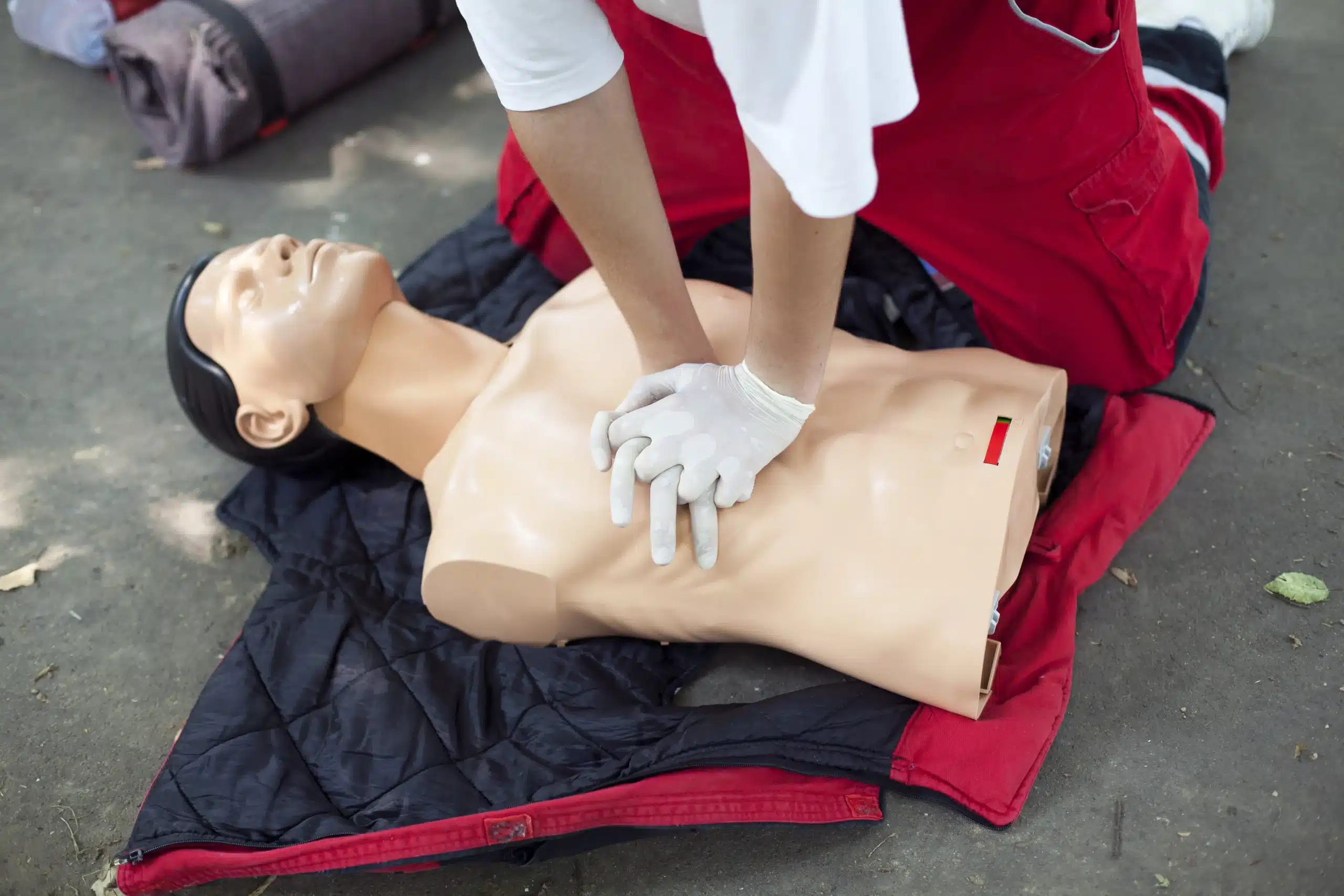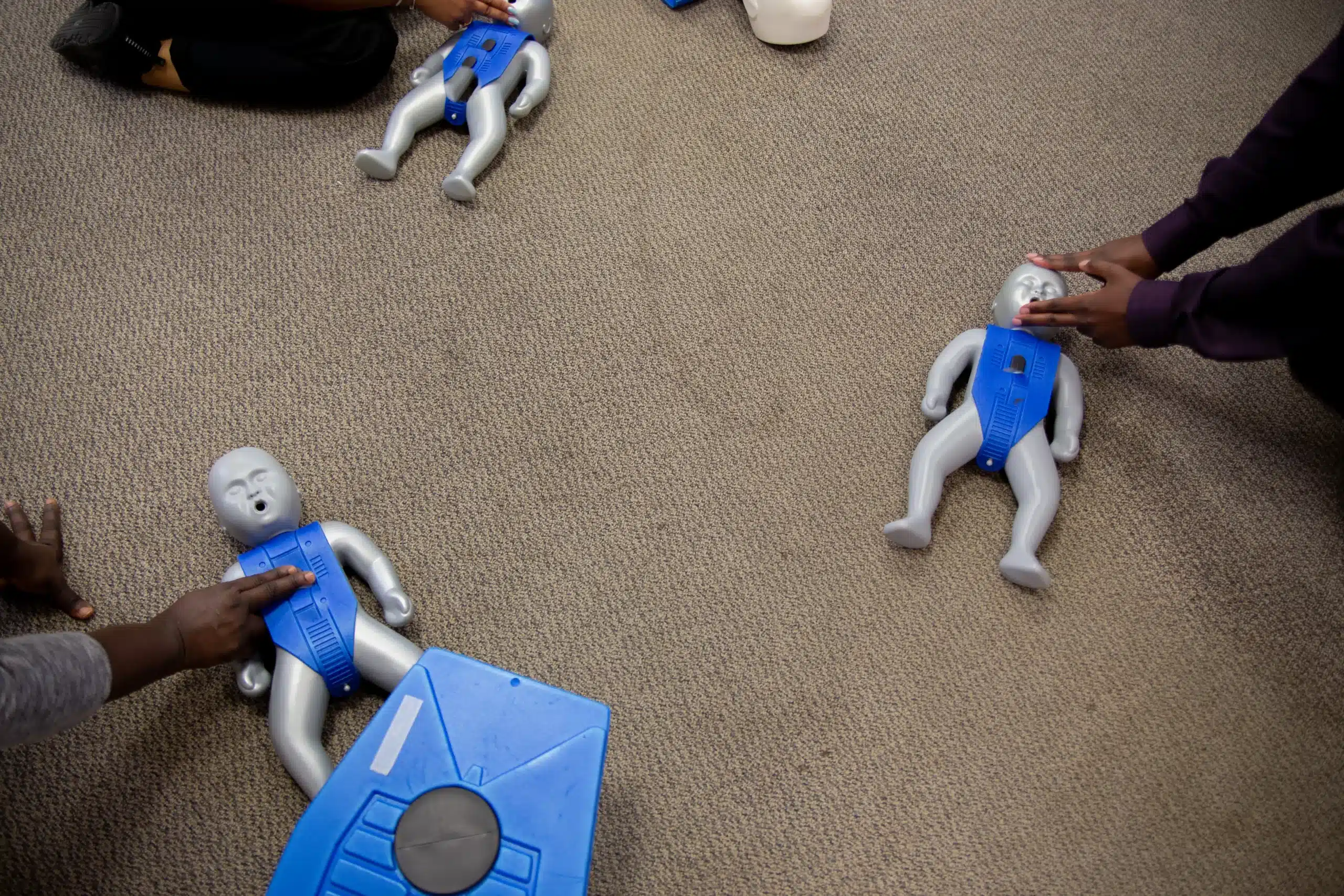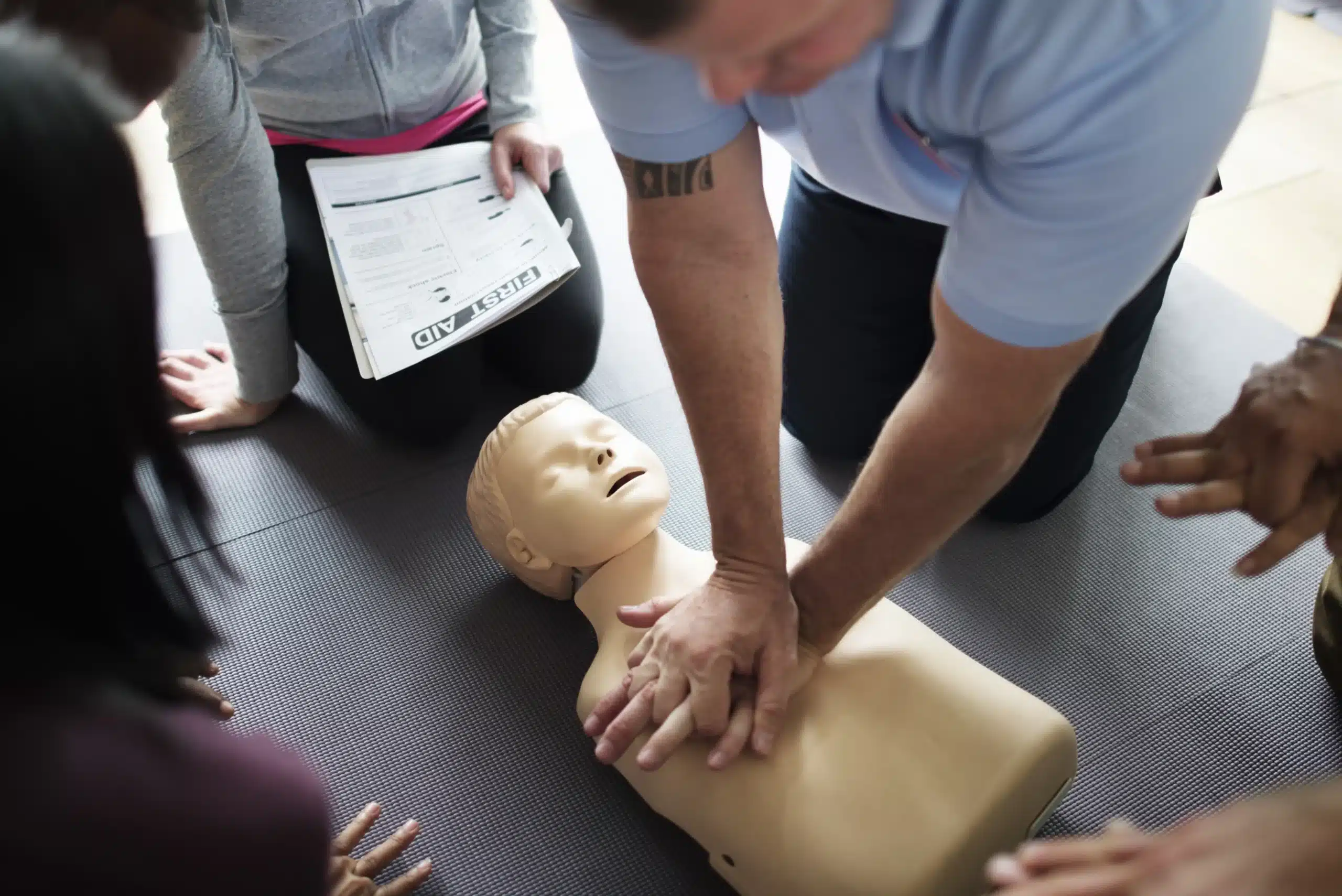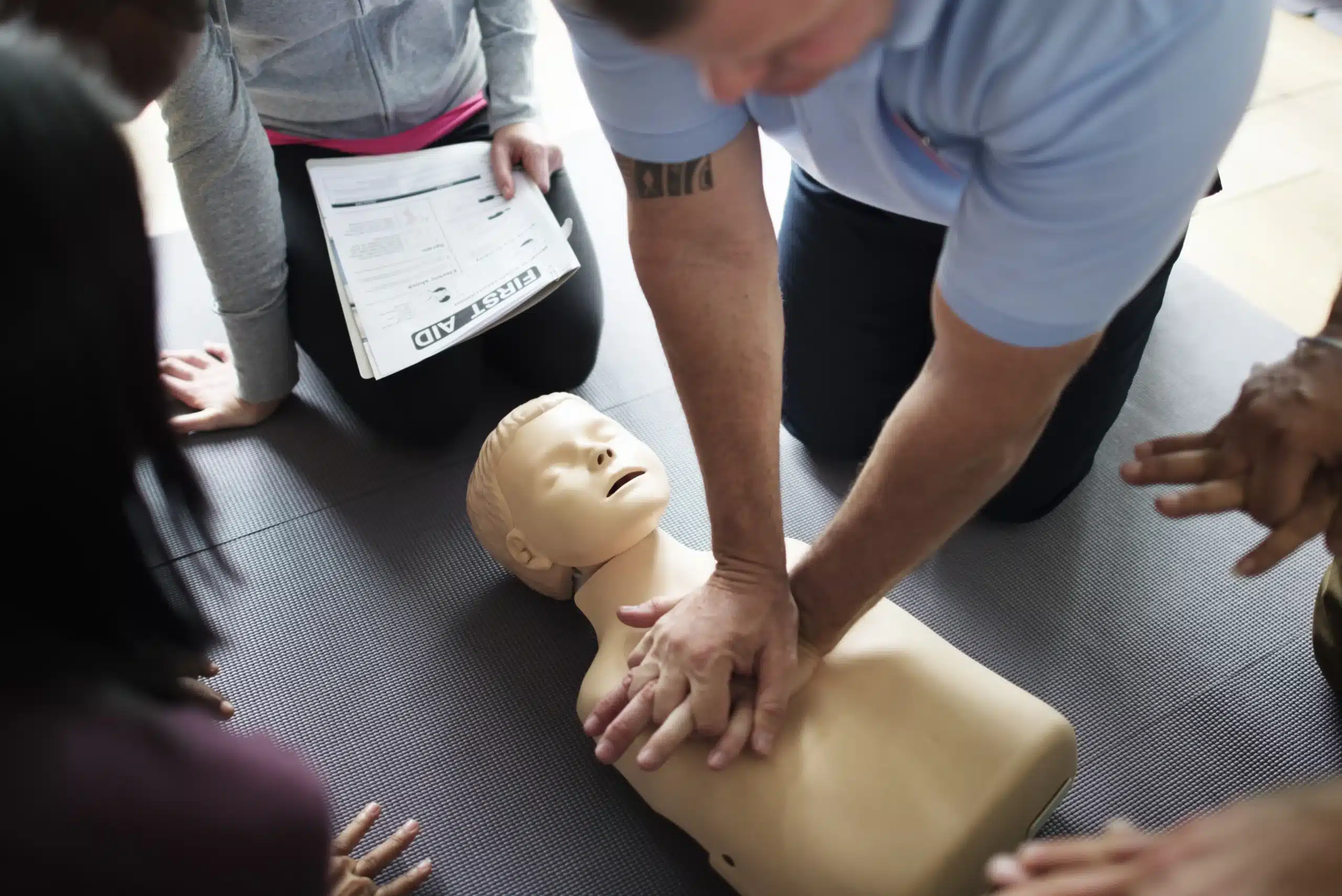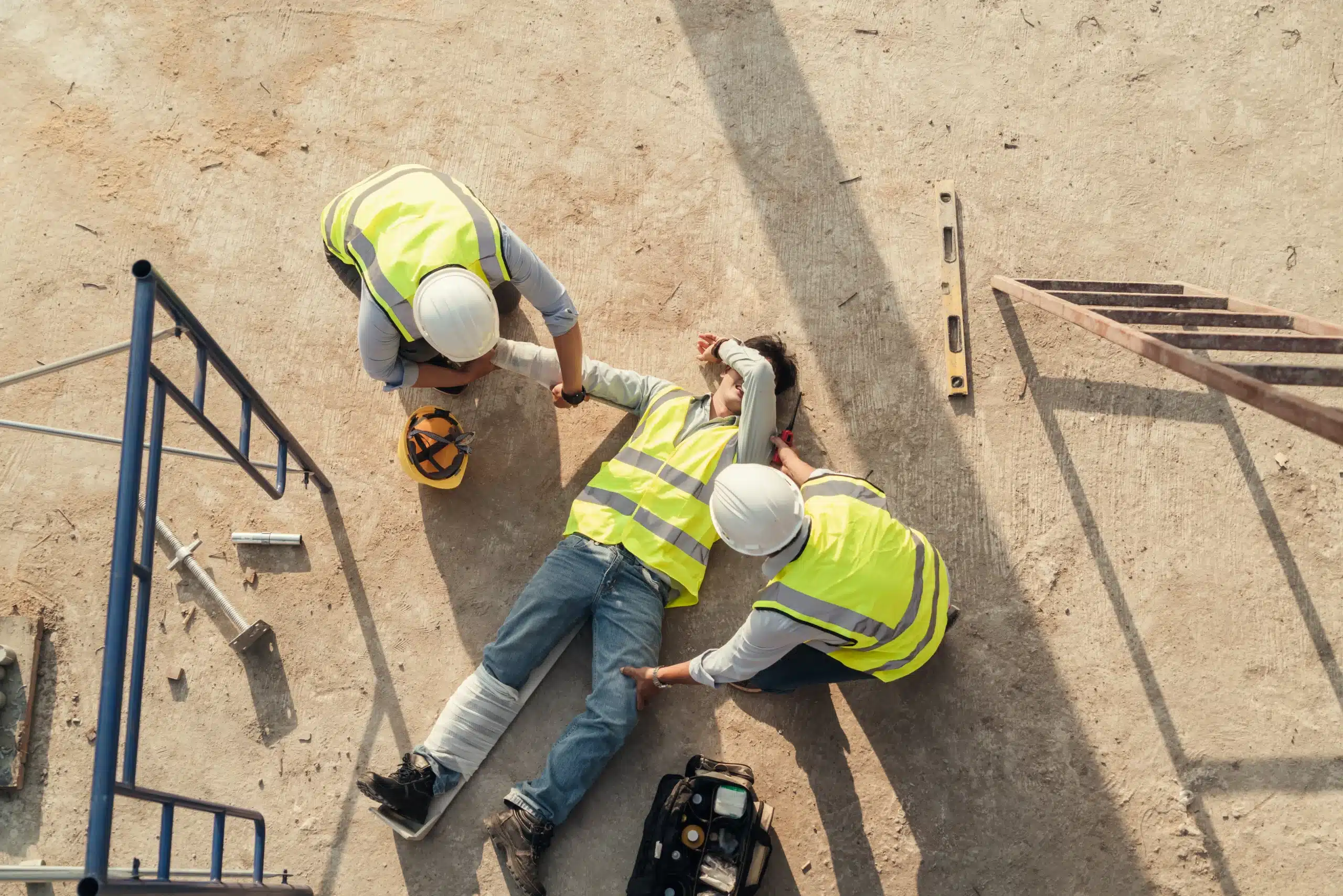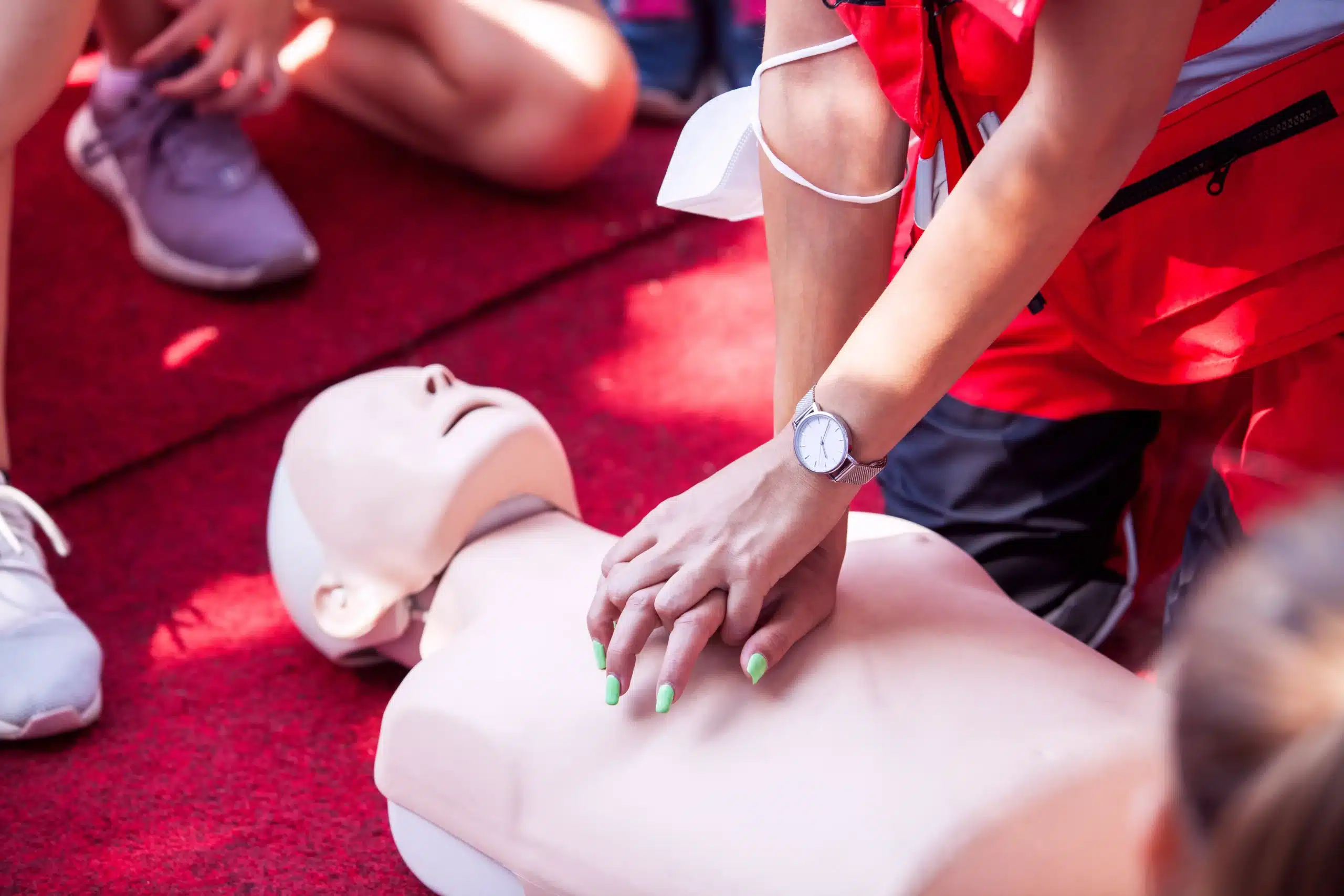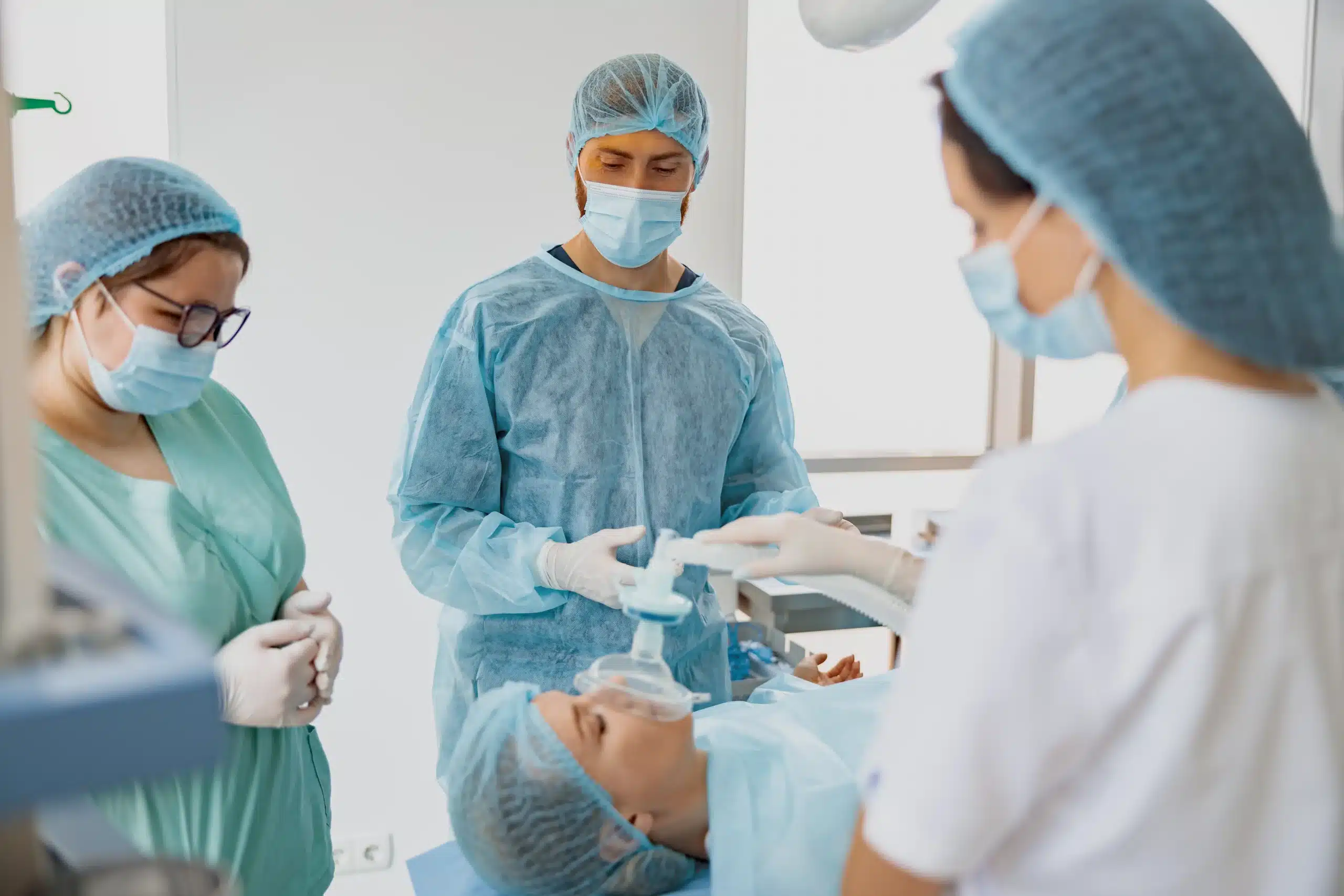Seconds matter in a medical emergency, and as a healthcare provider in Palo Alto, you’re on the front lines of providing critical care. BLS for healthcare providers in Palo Alto empowers you with the skills and confidence to respond effectively in these high-pressure situations. This article breaks down the key components of BLS training, including CPR techniques, AED use, and airway management. We’ll also explore the various training options available in Palo Alto, from traditional classroom settings to blended learning and the innovative RQI program. Plus, we’ll discuss cost-saving opportunities and the importance of choosing an accredited training provider.
Key Takeaways
- BLS certification is fundamental for healthcare professionals: It provides essential life-saving skills, boosts confidence in emergencies, and is often a job requirement. Find a program that suits your learning style and schedule.
- Choose a BLS course that works for you: Options range from traditional classroom settings to flexible online and blended learning. Prioritize AHA-certified courses with experienced instructors and hands-on training.
- Stay current with your BLS skills: Renew your certification every two years and explore continuing education to keep your skills sharp. Consider the streamlined RQI program for convenient renewal and skills maintenance.
What is BLS for Healthcare Providers?
Basic Life Support (BLS) for Healthcare Providers covers the essential life-saving skills needed for medical emergencies. It’s designed for healthcare professionals like doctors, nurses, and EMTs, focusing on effective responses to cardiac arrest and respiratory failure. The BLS course equips providers with the knowledge to perform high-quality CPR, use an AED, and manage airway and breathing emergencies. It’s the foundation for responding to life-threatening situations in a healthcare setting.
The American Heart Association emphasizes the importance of team dynamics and high-quality CPR in their BLS training. The curriculum covers single-rescuer and team BLS skills applicable in both prehospital and in-facility environments. You’ll learn how to coordinate with other medical personnel during emergencies, ensuring smooth and efficient patient care. Stanford Health Care also highlights these skills, emphasizing circulation (CPR and AED use), airway management, and breathing as vital for stabilizing a patient. These core skills are the building blocks of effective emergency response. The Red Cross clarifies the distinction between BLS and BCLS (Basic Cardiopulmonary Life Support), noting that BLS is tailored for healthcare professionals requiring a deeper understanding of emergency medical procedures. This specialized training ensures you’re prepared to act quickly and confidently in critical situations.
Why is BLS Certification Essential for Healthcare Professionals?
BLS certification is fundamental for healthcare professionals. It empowers them with the skills to respond effectively during emergencies, providing crucial care during life-threatening situations. These BLS CPR classes, offered through the American Heart Association (AHA), instill not just technical skills but the confidence to act decisively when every second counts. This training covers essential techniques like CPR, AED use, and airway management, ensuring healthcare providers can deliver immediate, potentially life-saving interventions.
Beyond the immediate application of skills, BLS certification is often a prerequisite for many healthcare roles. Whether you’re a registered nurse, a medical assistant, or pursuing other healthcare studies, holding a current BLS certification demonstrates your preparedness to handle critical situations. This commitment to maintaining your certification reflects your dedication to patient safety and high-quality care. Furthermore, the AHA’s RQI program offers a streamlined approach to obtaining and renewing BLS certification, making it more accessible for busy professionals. This innovative program emphasizes high-quality CPR and incorporates the latest resuscitation techniques, ensuring healthcare providers stay up-to-date with best practices. In a dynamic community like Palo Alto, having readily available, BLS-certified professionals significantly impacts patient outcomes and contributes to overall community health and safety.
Find BLS Training in Palo Alto
Finding the right BLS training program in Palo Alto depends on your learning style and schedule. Let’s explore some options:
In-Person BLS Courses
If you thrive in a traditional classroom setting and value face-to-face instruction, several organizations offer in-person BLS courses. Safety Training Seminars provides a range of American Heart Association (AHA) courses, including BLS, ACLS, and PALS. They offer convenient training throughout the week in Palo Alto and nearby areas, making it easy to find a class that fits your schedule. Redwood City CPR Classes also offers in-person BLS certification and covers other essential life-saving skills like CPR and first aid. For more information on local course offerings, visit the Safety Training Seminars website.
Online & Blended Learning BLS
For those who prefer a more flexible approach, blended learning combines online coursework with in-person skills practice. This format allows you to complete the online portion at your own pace, then attend a shorter, hands-on session to demonstrate your skills. Woodson Education offers the online component of the BLS HeartCode training. This is a great option for busy healthcare professionals who want to learn on their own terms while still receiving the necessary hands-on training.
RQI Program Details
The American Heart Association’s Resuscitation Quality Improvement (RQI) program offers a streamlined and efficient path to BLS certification. RQI uses innovative technology and personalized learning to help healthcare providers master essential resuscitation skills. This program is particularly beneficial for maintaining your skills and staying up-to-date with the latest guidelines. Palo Alto CPR Classes offers comprehensive information on various CPR and first-aid certification options, including RQI.
Benefits of BLS Courses in Palo Alto
AHA Certification
One of the most valuable aspects of completing a BLS course in Palo Alto is receiving certification from the American Heart Association (AHA). This widely respected credential validates your skills and knowledge in basic life support. Redwood City CPR Classes offers the innovative RQI (Resuscitation Quality Improvement) program, a convenient and efficient way for healthcare professionals to earn their AHA BLS, ACLS, and PALS certification cards. This program ensures you meet the highest standards for life support training.
Hands-on Practice & Equipment
BLS courses in Palo Alto prioritize hands-on learning, providing ample opportunities to practice essential life-saving techniques. You’ll work with realistic training equipment and scenarios, guided by certified instructors. This practical experience builds confidence and competence, preparing you to respond effectively in real-world emergencies. Consider joining our discount group classes for a collaborative learning experience.
Experienced BLS Instructors
Learning from seasoned BLS instructors significantly enhances the training experience. Our instructors bring real-world expertise and a passion for teaching, creating a supportive and engaging learning environment. They guide you through the curriculum, answer your questions, and provide personalized feedback to help you master the skills.
Comprehensive BLS Curriculum
BLS courses in Palo Alto cover a comprehensive range of life support techniques. You’ll learn essential skills such as CPR, AED use, airway management, and ventilation techniques. This thorough curriculum ensures you’re prepared to handle various emergency situations and provide effective care.
Immediate BLS Certification
Upon successful completion of your BLS course, you’ll receive your AHA BLS-HCP course completion card immediately. This allows you to put your new skills to use right away and meet any workplace requirements without delay. We also offer a low price guarantee, ensuring you receive high-quality training at a competitive price.
What You’ll Learn in BLS Training
BLS training equips healthcare providers with the skills to respond effectively in medical emergencies. This comprehensive training covers core life-saving techniques, from CPR and AED use to airway management. Let’s take a closer look at each component:
CPR Techniques
High-quality CPR is the cornerstone of BLS. You’ll learn the proper techniques for chest compressions and rescue breaths, the crucial first steps in stabilizing someone experiencing cardiac arrest. The training covers various CPR scenarios, including single-rescuer and team-based resuscitation, preparing you to handle diverse real-world situations. This focus on high-quality CPR ensures you can deliver effective aid and potentially save a life. CPR guidelines are constantly evolving, and this training will keep you up-to-date.
Using AEDs
Automated External Defibrillators (AEDs) are life-saving devices used to treat sudden cardiac arrest. BLS training includes thorough instruction on how and when to use an AED. You’ll learn to recognize the signs of cardiac arrest and the steps for safe and effective AED operation. This hands-on training builds confidence and ensures you can quickly and correctly use an AED in a critical moment. Knowing how to operate an AED can dramatically improve a person’s chances of survival.
Airway Management
Effective airway management is essential for providing life-saving ventilation. In BLS training, you’ll learn techniques to open and maintain a patient’s airway. This includes methods for clearing obstructions and delivering rescue breaths. Proper airway management ensures adequate oxygen flow, a critical component of successful resuscitation. The BLS course provides detailed instruction on these essential airway management skills.
Convenient BLS Training for Busy Professionals
Juggling work, family, and other commitments makes it tough to find time for professional development. We get that. That’s why finding a BLS course that works around your schedule is key. Luckily, there are several convenient options available for busy professionals like you.
Flexible Class Times
Many training centers understand the demands of a busy professional’s life. Providers like Safety Training Seminars offer classes throughout the day, evenings, and even weekends. This flexibility allows you to choose a time that seamlessly integrates with your existing commitments, minimizing disruption to your work and personal life. No more scrambling to rearrange your schedule—BLS training can now fit you.
Convenient Training Locations
Location is another important factor. Ideally, your BLS training should be easily accessible. Look for courses offered in convenient locations, minimizing commute time. Redwood City CPR Classes serves the surrounding areas, including Palo Alto, Menlo Park, and Redwood City, making it a central option for professionals in these communities. This centralized location makes accessing high-quality training easier than ever.
On-Site Training
For ultimate convenience, consider on-site training. Some providers, such as In Home CPR, bring the training directly to your workplace. This eliminates travel time and allows you to learn alongside your colleagues, fostering a collaborative learning environment. This option streamlines the training process, making it exceptionally efficient for teams.
Blended Learning
Blended learning offers a fantastic alternative for those seeking maximum flexibility. This approach combines online coursework with a shorter, in-person skills session. You can complete the online portion at your own pace, whenever and wherever it suits you. Then, attend a hands-on session to practice your skills and receive your BLS certification. Redwood City CPR Classes offers this blended learning format, allowing you to tailor your BLS training to your individual needs. This hybrid model offers the best of both worlds: the convenience of online learning and the essential hands-on practice for real-world scenarios.
BLS Course Costs & Discounts in Palo Alto
Finding the right BLS certification course at a good price is important. Let’s break down BLS costs in Palo Alto and ways you can save.
Pricing
BLS course costs in Palo Alto depend on a few factors, primarily the type of course and certification. A basic BLS certification for healthcare providers will usually have a different price than a more advanced course or one with extra certifications like First Aid. Compare pricing from different providers, including Redwood City CPR Classes, to understand the average cost.
Group Discounts & Offers
Training with a group? Many providers, including Redwood City CPR Classes, offer group discounts. This lowers the per-person cost, which is helpful for workplaces training multiple employees or student groups preparing for clinicals. Check providers’ websites or contact them directly to ask about current offers.
Low Price Guarantees
Some training centers, like Redwood City CPR Classes, offer low-price guarantees, matching or beating competitor pricing. This ensures you’re getting a good value. If you find a lower advertised price for a similar course, they’ll often match it, simplifying comparison shopping.
Top BLS Training Providers in Palo Alto
Finding the right BLS training provider is key to receiving quality instruction and obtaining your certification. Here are some reputable options in the Palo Alto area:
Redwood City CPR Classes
Redwood City CPR Classes offers the American Heart Association’s RQI (Resuscitation Quality Improvement) program. This innovative approach helps healthcare professionals maintain their BLS, ACLS, and PALS skills through frequent, low-dose practice and assessment. This focus on ongoing practice can lead to improved retention and better performance in real-life emergencies. They also offer group discounts and a low price guarantee. For more information, visit their BLS course page.
Stanford Health Care
Stanford Health Care provides a comprehensive Life Support Program. Their BLS certification course adheres to the latest American Heart Association guidelines. As an authorized AHA training center, Stanford ensures participants receive high-quality instruction and certification.
Palo Alto Medical Foundation
The Palo Alto Medical Foundation offers BLS classes designed for healthcare professionals. These courses cover essential skills and knowledge required for certification and practical application in various healthcare settings. You can explore their BLS training for more details.
Safety Training Seminars
Safety Training Seminars, a woman-owned AHA Training Center, is committed to providing excellent training. They offer a range of courses, including BLS certification, in Palo Alto. Their focus on quality instruction and adherence to AHA standards makes them a solid option for healthcare providers.
Heart Start CPR
Heart Start CPR is known for its positive reputation and effective training programs. They offer various levels of CPR training, including BLS for healthcare providers. With experienced instructors and a focus on practical skills, Heart Start CPR helps participants gain confidence in responding to emergencies.
In Home CPR
In Home CPR brings the training to you, offering on-site BLS courses at businesses and homes in Palo Alto. This convenient option allows healthcare professionals to learn essential lifesaving skills without disrupting their busy schedules. Learn more about their in-home BLS training.
Choose the Right BLS Training
Finding the right BLS training program is crucial for healthcare providers. It’s an investment in your skills and your patients’ safety. Here’s what to consider:
Accreditation & Certification
First, verify the program’s accreditation. Ensure the course is certified by a recognized organization like the American Heart Association (AHA). AHA accreditation means the training adheres to the latest evidence-based guidelines, giving you confidence in the quality and relevance of the material. Redwood City CPR Classes is an AHA Training Center, offering the assurance of a high-quality, up-to-date BLS course.
Instructor Qualifications
Experienced instructors are key to effective learning. Look for programs with certified instructors who have a strong healthcare background and a passion for teaching. Check for reviews that highlight instructor expertise and teaching style. Positive feedback often signals a supportive and engaging learning environment.
Course Materials & Resources
The right resources can significantly impact your learning. Modern BLS courses often incorporate hands-on practice, simulation, and immediate feedback. The RQI program offers a dynamic and efficient way for healthcare professionals to learn and maintain their BLS skills. Inquire about the included materials and resources to ensure they meet your needs.
Student Reviews
Finally, consider the experiences of other students. Reading reviews can give you a sense of a program’s strengths and weaknesses. Look for comments about the quality of instruction, course materials, and the overall learning experience. These firsthand accounts offer valuable perspectives.
Maintain Your BLS Certification
Renewal Process
Keeping your Basic Life Support (BLS) certification current is crucial for any healthcare provider. The American Heart Association (AHA) BLS for Healthcare Providers certification typically expires every two years. Thankfully, the renewal process is streamlined. While the initial BLS course takes around five hours, the renewal course is approximately four hours. After successfully completing the renewal, you’ll receive a new AHA BLS-HCP card, validating your updated certification.
Continuing Education
Beyond the required renewal, continuing education plays a vital role in ensuring healthcare professionals stay informed about the latest advancements in life support techniques. Stanford Health Care, for example, offers a range of courses, including BLS, ACLS, and PALS. These courses offer valuable opportunities to refine skills and expand knowledge, ensuring providers can respond effectively in emergencies. For a convenient renewal option, consider the RQI program, which offers a streamlined three-step process: an online component, a skills test with a voice-assisted mannequin, and same-day card issuance. This efficient approach helps busy professionals maintain their BLS certification without disrupting their schedules.
Related Articles
- BLS Classes in Menlo Park: Your Complete Guide – Redwood City CPR Classes
- BLS Courses in Redwood City: Your Complete Guide – Redwood City CPR Classes
- Advanced Cardiac Life Support (ACLS) in Menlo Park – Redwood City CPR Classes
- Basic Life Support (BLS) in Menlo Park: A Guide – Redwood City CPR Classes
- Advanced Cardiac Life Support (ACLS) in Palo Alto – Redwood City CPR Classes
Frequently Asked Questions
How often do I need to renew my BLS certification? BLS certification for healthcare providers is typically valid for two years. Renewal courses are available and often shorter than the initial certification course.
What’s the difference between BLS and CPR? CPR (Cardiopulmonary Resuscitation) is a specific life-saving technique within BLS (Basic Life Support). BLS encompasses a broader range of skills, including CPR, AED use, and airway management, providing a more comprehensive approach to emergency medical care. It’s designed for healthcare professionals, while CPR training is often geared towards the general public.
What is the RQI program, and how does it work? The Resuscitation Quality Improvement (RQI) program is an innovative approach to BLS certification. It involves frequent, short practice sessions and assessments using specialized equipment, focusing on maintaining high-quality CPR skills. This method helps healthcare professionals stay proficient in life-saving techniques through regular reinforcement.
Are online BLS courses accepted? Many organizations accept blended learning BLS courses, which combine online learning with in-person skills practice. Fully online courses without a hands-on component may not meet the requirements for healthcare professionals. Always check with your employer or licensing board to confirm their accepted certification methods.
How do I find a BLS course near me? Several resources can help you locate BLS courses in your area. The American Heart Association website has a course locator tool. Additionally, training centers like Redwood City CPR Classes and Safety Training Seminars offer courses in specific regions. Contacting local hospitals or medical facilities can also provide information on nearby BLS training options. Look for courses that fit your schedule and offer convenient locations.
